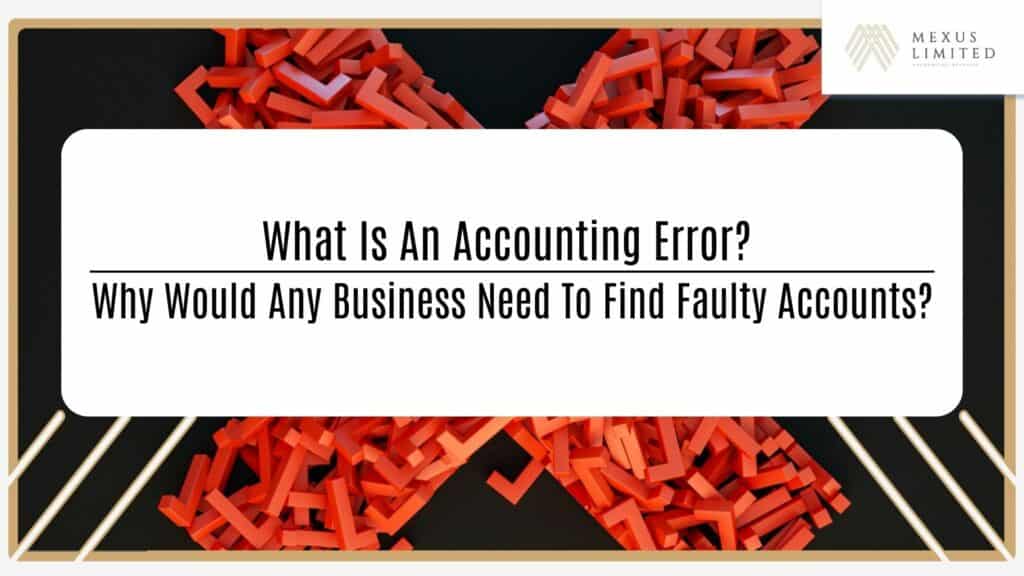What is an accounting error? Why would any business need to find faulty accounts?

In the current business development process, small and medium-sized enterprises handle accounts by themselves or only hire one or two general accountants, and it is easy to make mistakes with accounts. Among them, errors can be divided into the following categories:
“Mistakes” is an important issue in accounting. In the process of reconciliation, if the accountants or bookkeepers are careless, various errors may be caused, which will greatly affect the accuracy of accounting information and financial fairness. Therefore, it is the responsibility of the accountant to find out the wrong account and correct it immediately.
What is an accounting error? Is it equivalent to counting?
Accounting errors, or account errors, are frequent occurrences, and generally involve negligence caused by human errors of accountants or bookkeeping parties. Reason Negligence in work, low skills, limited knowledge, and other objective reasons lead to unreasonable, illegal, and untrue handling results.
Whether it is in the work of recording, sorting, calculating, making certificates, and compiling tables, the following errors may occur:
• Retrieve;
• Omissions;
• digital seizures;
• Numerical misplacement;
• Misremembering numbers;
• Misremembering subjects;
• The direction of debit and credit is reversed.
Different from the fraud of “doing numbers” with illegal intentions, the wrong account is a kind of negligence, which is a kind of “no malicious” mistake; while “doing numbers” is the result of deliberate behavior driven by bad intentions or special purpose motives, and it’s accompanied by attempts at whitewashing and camouflage.
1. Why do we need to find accounting errors?
Accountants with rich accounting experience will say: “Bookkeeping is easy but auditing is difficult.” The meaning is reflected in a large-scale company. Once accounting errors occur for any reason, “finding the wrong accounts” is very difficult.
It is a pity that, without the help of professional accountants, the frequency of error accounts is very high in actual work. Usually, the opportunity cost associated with finding a mistake is very high, and it may generally take a whole night, or even a few days, to catch the wrong account.
The main purpose of finding wrong accounts is to keep accounts and accounting information accurate, reasonable, and fair. In order to avoid paying more mental effort to find a wrong account, the enterprise should strengthen the relevant accounting and management procedures, and preventing it before it happens is the best policy.
2. What is the usual error? Are there any classifications for wrong accounts?
1. Frequent errors and occasional errors (classified by error inertia);
2. Absolute error, relative error (classified according to the impact);
Generally, absolute errors affect the operating results of enterprises, such as omissions; otherwise, they can be called relative errors.
3. Substantial errors and formal errors (classified according to the wrong form);
Affecting the accounting is a substantive error, such as an accounting error; a formal error may simply be the use of the wrong accounting format.
4. Principle errors and technical errors (whether they violate accounting theory);
Violations of accounting theories, systems, and regulations are principal errors, while errors in other affairs can be regarded as technical errors.
5. Serious errors and minor errors (classified according to the severity of the errors) If it is enough to affect the judgment of the financial statements, it is a serious error; otherwise, it is a slight error.
The above information is for reference only. If you have any questions about tax declaration and accounting, we welcome your inquiries.

